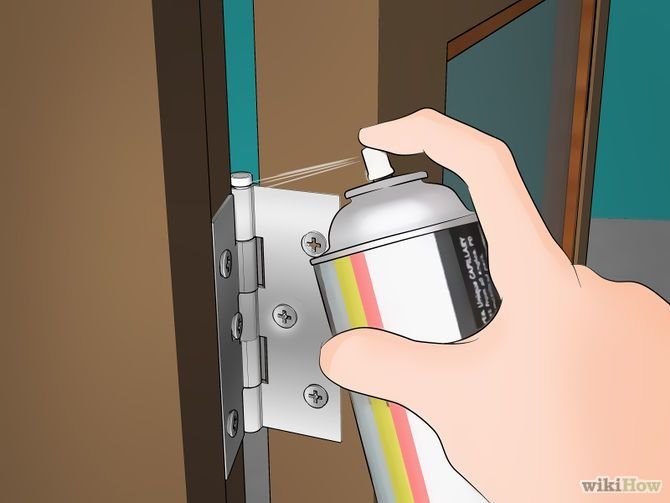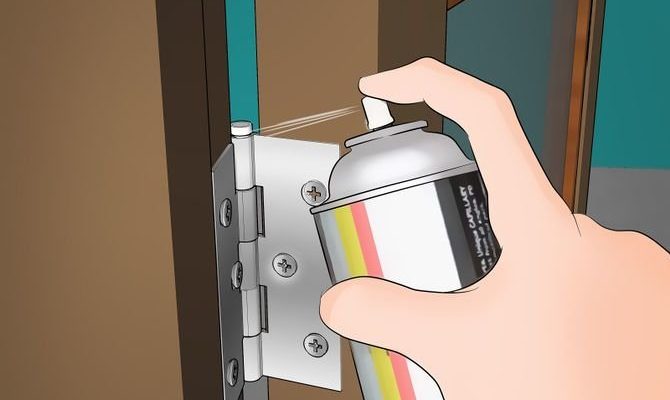
Picture a door hinge like a well-oiled machine; it works smoothly when taken care of but can squeak and creak when neglected. Just like we don’t want to walk around with dirty shoes, we don’t want our hinges to accumulate grime. Not only does this lead to unsightly rust and deterioration, but it can also make your doors harder to open and close. So, how can you keep these essential parts of your home running smoothly and looking good? Let’s dive in.
Understanding Grime Buildup on Door Hinges
Grime buildup happens when dirt, dust, and moisture accumulate on your door hinges over time. The hinges trap this debris, making them sticky and less functional. You might notice that your door doesn’t swing open as easily, or you hear annoying squeaks when you try to move it. It’s a common issue, but the good news is that it’s avoidable.
Why does this happen? Well, many people might not realize that door hinges are constantly exposed to the elements. This exposure can lead to rust, especially if you live in a humid area. Not to mention, if you have pets or young kids running around, the dirt they bring in can quickly collect on your door hinges. Addressing grime buildup early can save you from more significant repairs down the line.
Regular Cleaning: The Key to Prevention
One of the simplest ways to prevent grime buildup is through regular cleaning. Just like we need to wash our hands daily, your door hinges need attention too. You don’t have to dedicate hours to this task; a quick, focused approach can do the trick.
Start by gathering your cleaning supplies. You’ll need a soft cloth, a brush (an old toothbrush works wonders), and a mild cleaning solution like dish soap mixed with water. Alternatively, white vinegar is excellent for cutting through grime. Here’s how to clean your hinges effectively:
- First, wipe down the hinge with a damp cloth to remove loose dust and dirt.
- Next, dip your brush in the cleaning solution and scrub the hinge, focusing on the crevices where grime tends to build up.
- Finally, rinse off any cleaning solution with a damp cloth and dry the hinge with a towel.
Doing this every 1-3 months will keep your hinges looking and functioning their best.
Using Lubrication Wisely
Lubrication is crucial for keeping your door hinges operating smoothly. Think of it as giving your hinges a refreshing drink of water after a workout. It helps reduce friction, prevents rust, and ultimately, keeps grime buildup at bay.
When choosing a lubricant, go for options like silicone spray, which repels dirt and moisture, or lightweight oil, such as 3-in-1 oil. Here’s how to do it:
- Clean the hinges thoroughly as mentioned earlier.
- Apply a small amount of lubricant to the moving parts of the hinge.
- Open and close the door a few times to distribute the lubricant evenly.
Be careful not to overdo it—too much lubricant can actually attract more dirt. A little goes a long way!
Sealing Hinges to keep Grime Away
If you want to take a proactive approach, consider sealing your door hinges. This step acts like a raincoat for your hinges, keeping grime and moisture out. You can use a protective coating, such as spray wax or a clear sealant.
Here’s how you can apply it:
- Ensure the hinges are clean and dry.
- Apply the sealant with a cloth or spray bottle, covering the entire surface.
- Allow it to dry completely before using the door.
Sealing your hinges can create an extra barrier against dirt, moisture, and grime, making them easier to maintain in the long run.
Monitoring the Environment Around Your Hinges
Did you know that your home’s environment plays a big role in the condition of your door hinges? Things like humidity, dust, and pet dander can contribute significantly to grime buildup. Understanding your environment can help you take extra precautions.
For instance, if you live in a humid area, consider investing in a dehumidifier. This device can help reduce moisture levels in your home, which is great for preventing rust on your hinges. Also, try to keep nearby areas tidy. Regularly vacuuming the floor and using a mat at the door can reduce the amount of dirt that lands on your hinges.
You might be wondering, “How often should I really check my hinges?” Ideally, you should give them a quick look every month. If you notice any signs of buildup, take action right away. Prevention is key.
Replacing Old Hinges
Sometimes, despite all your efforts, your hinges might be beyond saving—especially if they’re old and rusty. In this case, replacing them can be the best option. Think of it like upgrading from an old flip phone to the latest smartphone; your doors will function much better!
When choosing new hinges, look for durable materials that resist rust, like stainless steel. Installation is usually simple, requiring just a screwdriver. If you’re not comfortable doing it yourself, many local handymen can help.
Once you have the new hinges in place, don’t forget to implement the cleaning and lubrication routine to extend their lifespan.
Final Thoughts on Door Hinge Maintenance
Preventing grime buildup on door hinges doesn’t have to be a daunting task. With a few simple steps—like regular cleaning, careful lubrication, and monitoring your home environment—you can keep those hinges running smoothly. Remember, your door hinges are like the unsung heroes of your home; they deserve a little TLC.
So, next time you pass through an open door, take a moment to appreciate those little hinges working tirelessly behind the scenes. A bit of preventive care today can save you time and trouble tomorrow!
